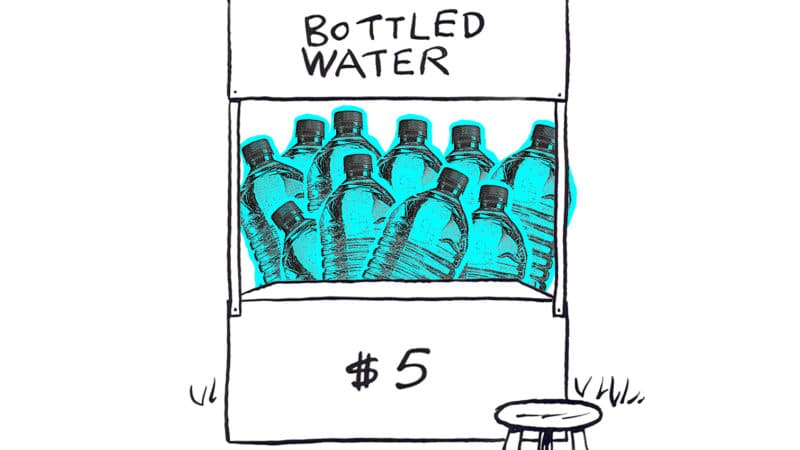By Jasmine Knox
Gov. Ron DeSantis has pushed to wipe all mention of climate change from state law and criminalized sleeping outside state-wide not only in the face of Florida’s rates of homelessness being top three in the country, but as emergency shelter space fails to increase to compensate as hurricanes continue to batter the state.
A 2023 annual report by the Florida Division of Emergency Management on shelter development states that, while more evacuation shelter space has been added year after year, it has not kept up with population increases and the decay of its own infrastructure. Most counties have enough spaces, but the report recommends an almost 10% increase from 1.02 million spaces to 1.14 million at a cost of over $70 million to keep it that way.
The Homeless Services Network of Central Florida’s January point-in-time count found that people experiencing homelessness in Central Florida rose by almost a third compared to last year’s, though.
Martha Are, the president and CEO of HSN, told the Homeless Voice that hurricanes and the lack of non-emergency shelter is an increasing threat to those experiencing unsheltered homelessness as rates continue to rise.
All the while the Emergency Management report says that the State Shelter Development Program budget has been stagnant since 2008 in the face of shelter space development costs increasing by at least four times since then.
More unsheltered homelessness means more people that need shelter, and the less shelter the more emergency shelter needed to compensate during a hurricane
According to HSN, the shelters in their region have agreed, thanks to Are’s efforts, to expand beyond normal capacity in emergencies likes hurricanes, helping with that issue. The current issue in their region of Central Florida is lack of shelter on an everyday basis.
Other local nonprofits have felt the pinch of budget constraints in their attempts to manage the increase in Floridians experiencing homelessness.
SALT Outreach, a nonprofit which serves unhoused individuals in need in Orlando, was recently on the verge of closing until they received a $300,000 donation from Big Nova Foundation. Eric Caramillo, the president and CEO, attributed the financial strain largely due to federal grants and funding from Orlando and Orange County, supplemented by federal COVID funding, running dry.
Some of those experiencing unsheltered homelessness say they face even more red tape trying to access emergency shelter in preparation for a hurricane.
Mary Stewart has survived multiple hurricanes while unsheltered in Florida, previously writing on her experience of Hurricane Wilma for the The Homeless Voice.
When Hurricane Irma made landfall in Florida in 2017, Stewart said it was difficult for herself and her husband, along with their peers, to find shelter.
“The first shelter we went to said they wouldn’t accept homeless people,” she said. “The next shelter…accepted us. But the second night, the staff called a group of us together and moved us into a narrow hallway and tried to lock us in until we ‘raised hell’ and threatened to sue. We couldn’t figure out why we were put in the hallway, until we realized we were all homeless.”
Stewart also said she’s seen people with addictions struggle to find an accommodating shelter that provides medical intervention or treatment for withdrawal, and Red Cross shelters turn away people for not having identification.
Legislation like Florida’s recent state-wide camping ban leaves many unsheltered Floridians liable to be arrested for sheltering outside in a storm. Stewart expressed anxiety about the possibility of being ticketed or jailed for this, especially if local shelters are already at capacity.
“The state is consequencing [sic] poor people for being poor and disabled people for being disabled,” said Stewart.
While Florida’s new law will severely restrict options for unsheltered individuals, the state is also on a trajectory to broadly ignore the solutions required to mitigate the effects of climate change.
As of July 1, 2024, legislation signed by DeSantis erases most mentions of climate change from state law as parts of Southeast Florida were flooded with over 20 inches of rain and Hurricane Beryl became the earliest recorded Category 5 hurricane in the Atlantic the month before.
“The need for affordable housing and emergency homeless shelters, this is an infrastructure challenge,” Are said. “And it requires funding and that’s a challenge for communities that grow very quickly,” referencing the growing population of communities like Orlando.



